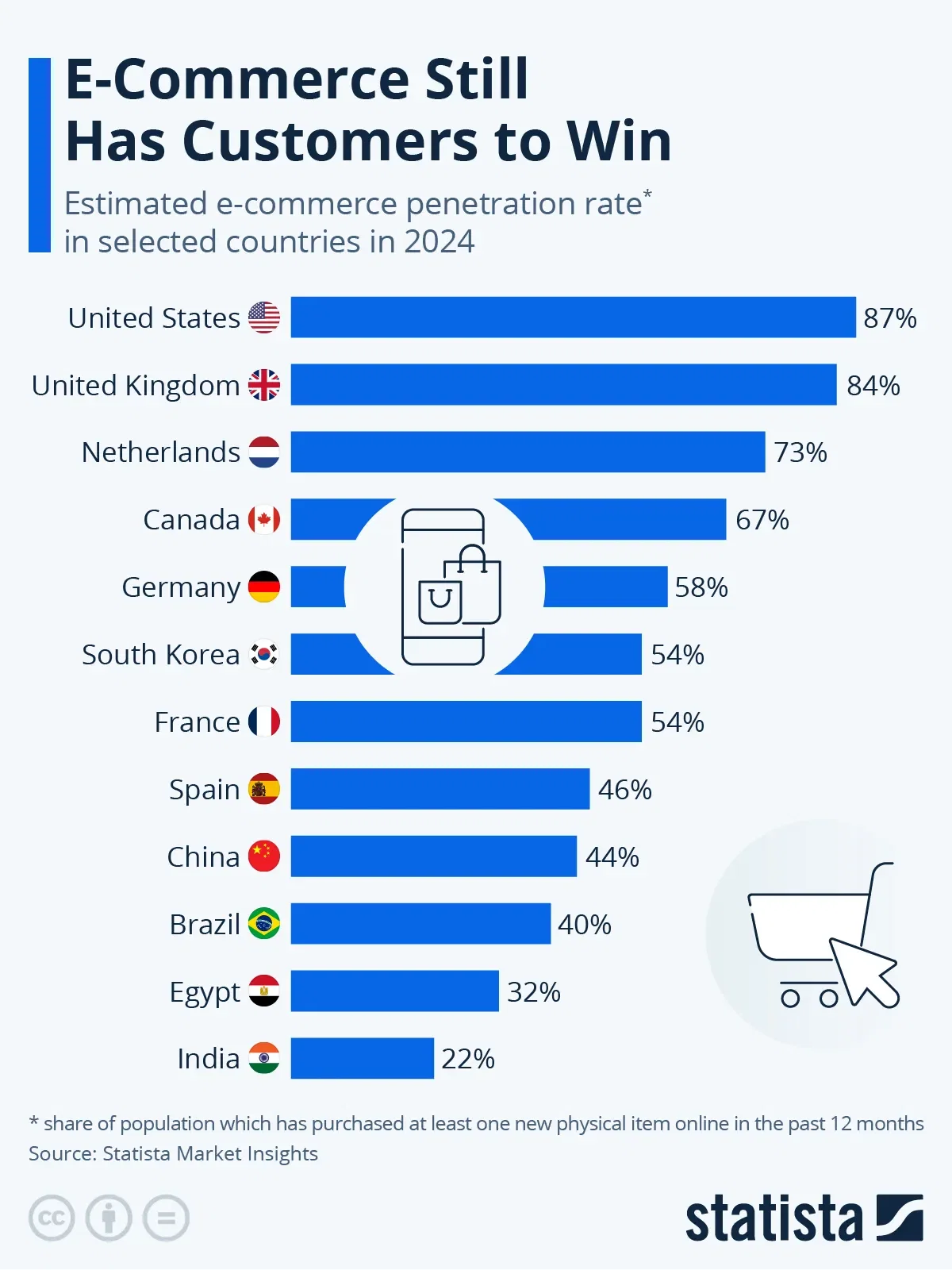E-Commerce Still Has Customers to Win

The United States and the United Kingdom may be two of the most advanced e-commerce markets in the world, but even there, online shopping still hasn’t reached everyone. This year, 84 percent of Britons and 87 percent of Americans are expected to make at least one purchase of a new physical item on the Internet, according to estimates from Statista Market Insights. While the penetration rate technically doesn’t show how frequently a country’s population shops online, both penetration rate and intensity of e-commerce often go hand in hand. According to eMarketer, 35.9 percent of retail sales already happened online in the United Kingdom in 2022 – one of the highest rates among developed countries.
E-commerce is traditionally considered to do well in densely populated and highly developed markets, like the United Kingdom and also the Netherlands, where market penetration was estimated at 73 percent in 2024. Larger and more diverse markets tend to move slower with more infrequent purchases. The U.S., where penetration was at 87 percent, only chalked up 15 percent of retail sales to e-commerce.
China – a huge e-commerce growth market - turns these expectations on their head, however. According to eMarketer, 45 percent of retails sales are already happened on the internet in the country in 2022 even though more than half of the population does not (yet) shop online. The big urban-rural divide might be to blame in creating an intense online shopping behavior among city dwellers while broadband connections, let alone e-commerce have not yet reached all Chinese.
Other emerging economies, like Brazil, Egypt and India, are catching up more gradually as penetration rates for e-commerce remained low. Southern European nation Spain also exhibited a relatively low rate of online shopping.